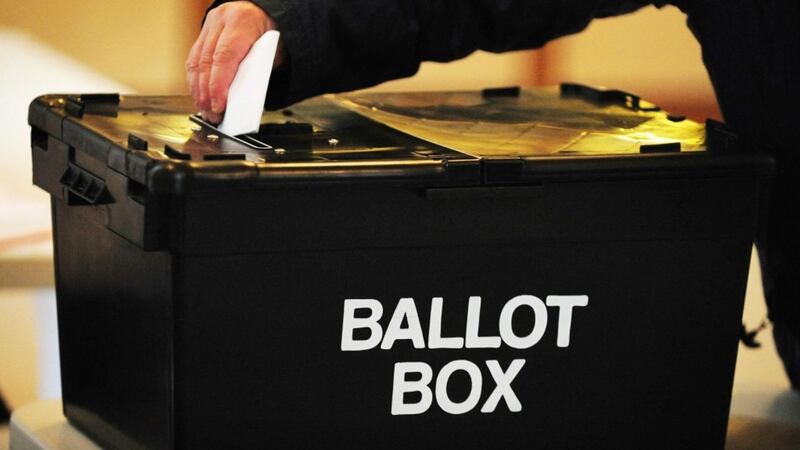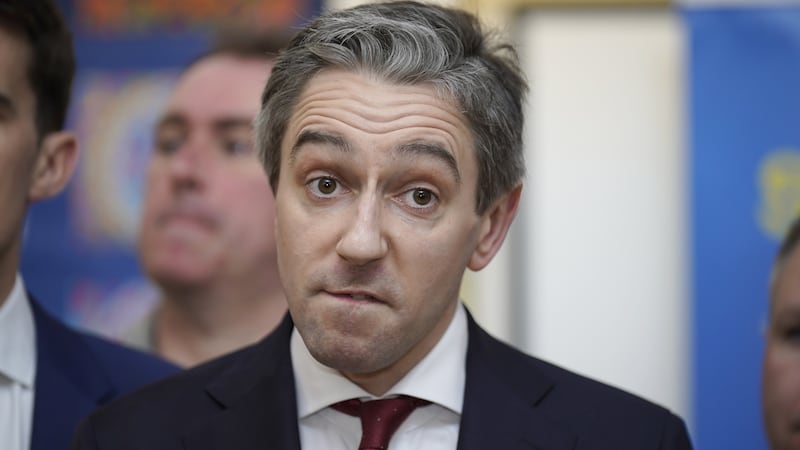Whether you think next Thursday's election is about Brexit, the border or something else, it will all boil down to a contest between unionism and nationalism. It always does.
So, as you prepare to put your 'X' for one or the other, it would appear reasonable to ask what exactly is the difference between the two. Most voters will presumably have reasons to justify their choice, but this column would respectfully suggest that, in broad terms, there is little difference between unionism and nationalism.
An odd argument, you might think, but hopefully one worth exploring.
Both are largely aspirational. Nationalists want political unity with Dublin. Unionists prefer union (which is not quite the same as unity) with London. Both camps contain a strong element of romantic idealism, which tends to remove them from the normal, left-right political spectrum. Loyalty to the flag overrides concern for political reality in Dublin or London.
In Dublin, for example, there are currently 12 tribunals of inquiry under way. They include five inquiries into Garda misconduct or inadequate investigation; the Olympic Tickets allocation; the Mother and Baby Commission, investigating the running of 14 homes, including the one in Tuam where 796 children were buried in the garden; the Fennelly Commission into the taping of phone calls in Garda stations and the inquiry into how a Garda whistleblower was falsely accused of child sex abuse.
They follow a litany of other inquiries over the past 30 years, investigating everything from child abuse to payments to politicians. Meanwhile, the government is fighting against an EU ruling that it should collect €13 billion (nearer €19 billion, if interest is added) in taxes from Apple, one of the richest corporations in the world.
It would appear an odd political system with which to seek unity. But never mind the scandals and injustice, wrap the green flag round me, boys.
Unionists appear to prefer union with British scandals, which include cash-for-questions in the Commons (Neil Hamilton), perjury (Jonathan Aiken), MPs' expenses and, of course, the illegal invasion of Iraq.
Britain is a country where top city bosses earn more than £1,000 an hour, which means that it takes them less than three days to earn the UK average salary. Meanwhile an investigation by the Liverpool Echo newspaper reveals that 14 social welfare cuts over the past seven years have most seriously hit women, children, the sick, disabled and young people.
Never mind, lads, beat the Orange drum more loudly to drown out the sound of four million (30 per cent) UK children in poverty, including the 100,000 who live here.
Our politics and all our elections are based on which of those two states we should be united with. Can you spot the difference between them?
Of course, unionism and nationalism used to be clearly different. Only unionists believed in the legitimacy of partition and loyalty to the monarchy. Today, however, nationalism also accepts partition and nationalist leaders queue up to shake hands with royals of all ranks.
Some nationalists argue that they do not want unity with the present Dublin government, they want a new Ireland. But the border poll for which they so fervently argue will not include that option.
Sinn Féin and the SDLP also argue that they seek not just political unity with Dublin, they also want to be united with 27 other EU states. That would be the same EU in which almost 120 million people (24 per cent) are at risk of poverty or social exclusion and 27 per cent of children are already in poverty.
The EU has its own list of political scandals. In 2011 an internal audit found that 7,000 unelected officials in the EU's assembly were allowed to authorise their own expenses (as MLAs used to do). The report's details were kept secret from all but a few MEPs.
Last year the European Parliament published an independent study which showed that 14 per cent of the entire EU economy was "bathing in corruption". The EU just fosters inequality on a larger scale than Britain or Ireland.
So whether a unionist or a nationalist wins in your constituency next Thursday and whether it causes you to cheer or cry, remember that on Friday morning the same children here will still go hungry to the same under-funded schools.
For them, the cheers of election victories will ring hollow in their heads, because nothing will have changed. As long as we base our politics on unionism and nationalism, nothing ever will. But we will still say: "Wasn't that a great election all the same?"









